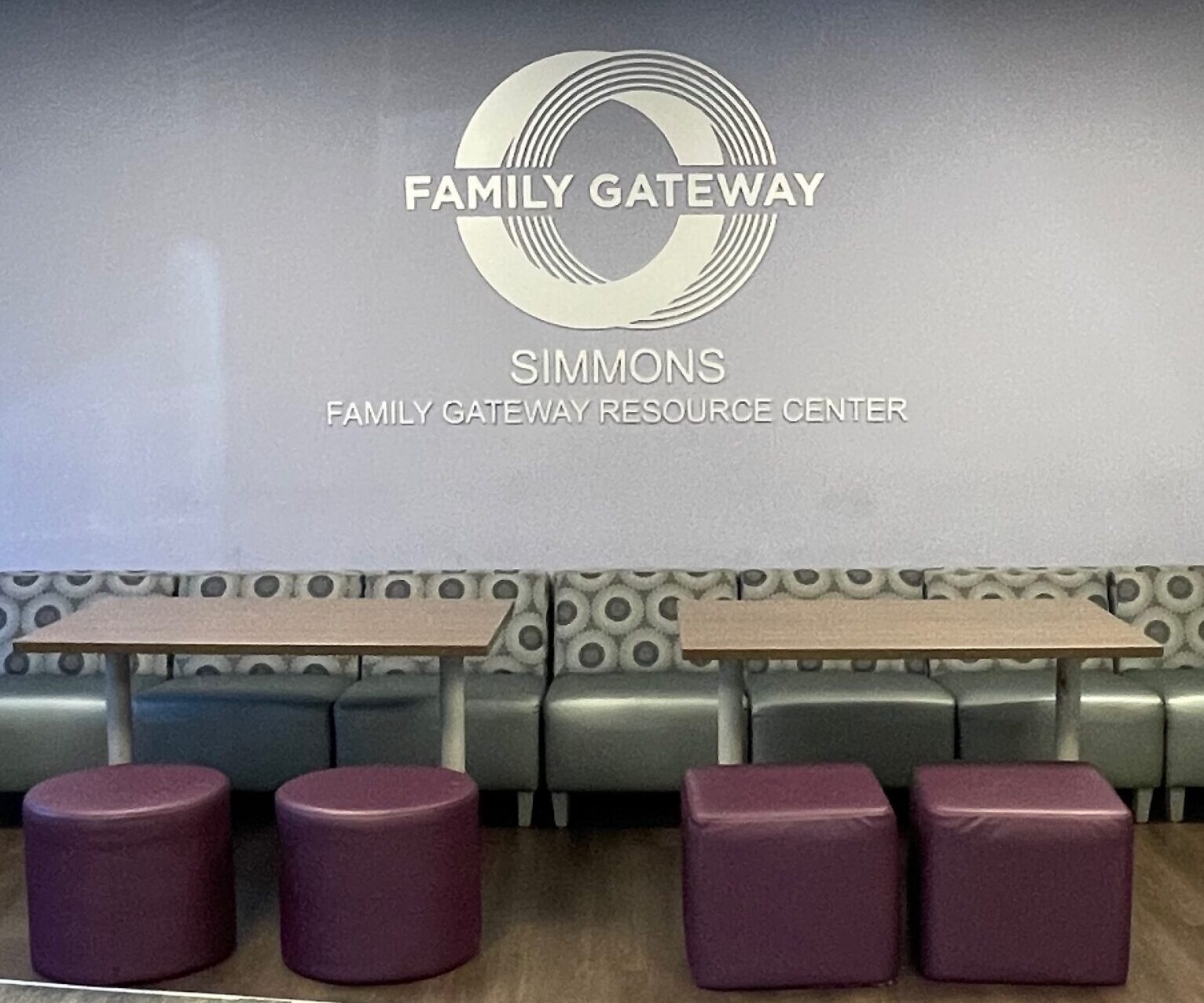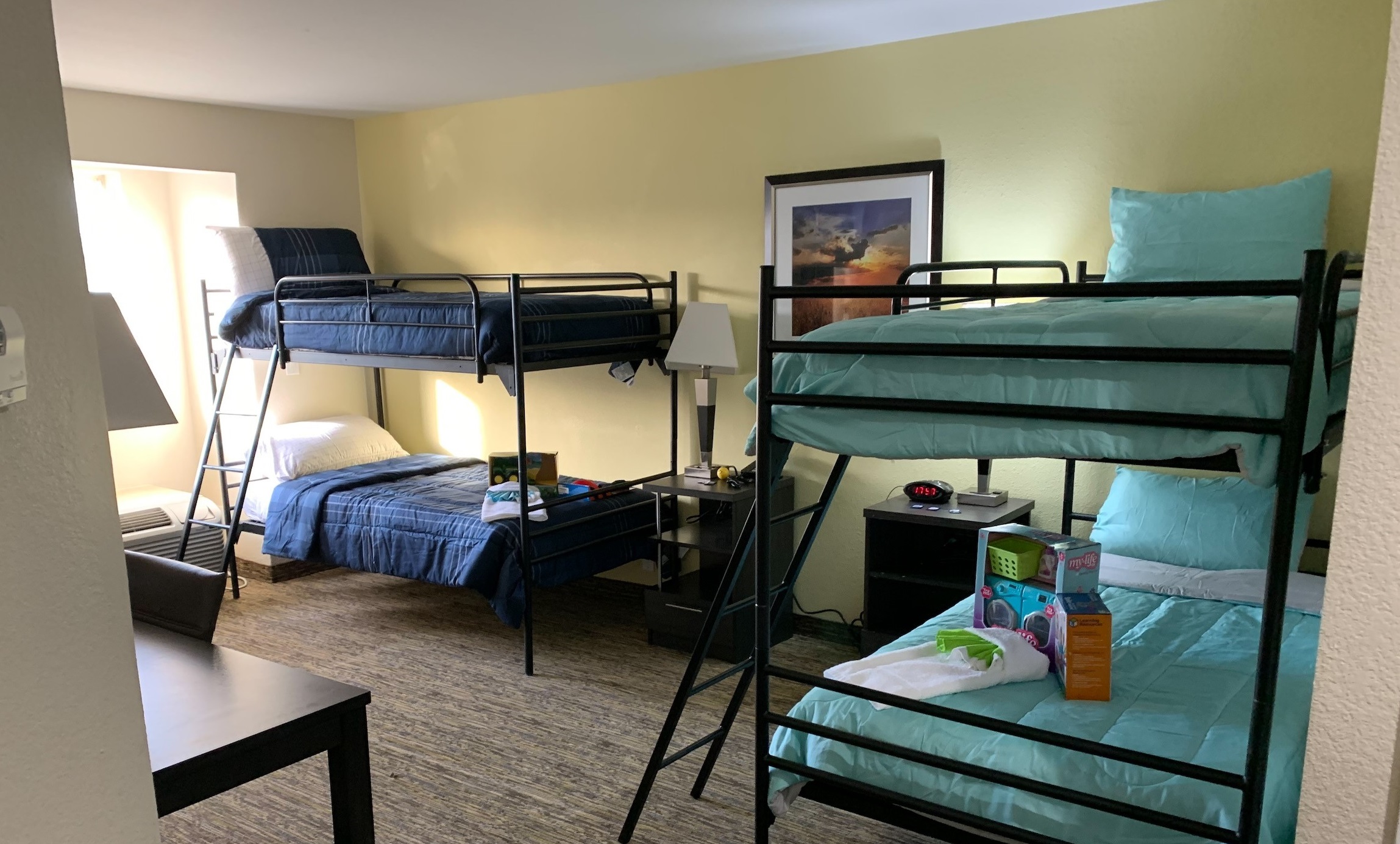How We Help
We use a two-generation approach to support our families by working with the adults and the children in the family to help them regain stability and self-sufficiency. Programs focus on housing and employment for adults and on education stabilization for children. Interventions include assessment and diversion, emergency shelter, supportive housing, case management, and an education program.
Assessment & Diversion
Our Assessment & Diversion team works to find alternatives to shelter (landlord mediation, family reunification, etc.)-reducing trauma and conserving limited shelter space- or appropriate shelter for children and families experiencing homelessness. We serve as the access point in Dallas and Collin Counties.
In 2024 we:
- Pre-screened 6,276 callers through the Homeless Crisis Helpline to determine service eligibility.
- Identified 3,987 families as literally or imminently homeless; this is an estimated 9,968 children.
- Diverted approximately 1,877 families from shelter.
- Triaged approximately 642 families into shelter. 72% of these families were served in our emergency shelter or hotel overflow program.
 Simmons Family Gateway Resource Center
Simmons Family Gateway Resource Center
To manage our growth, we operate the Simmons Family Gateway Resource Center for all non-shelter services. This high-volume Assessment and Diversion practice is located here for easy triage to family-serving shelters. Supportive housing case managers and administration also work from this center. We thank the Harold Simmons Foundation and an anonymous donor for supporting our service expansion to assist more families.
 Emergency Shelter
Emergency Shelter
We operate a 50-room shelter in partnership with the City of Dallas at a former Candlewood Suites property in Far North Dallas. Our shelter meets the immediate needs of safety, housing, food, and essentials for families. It is the only shelter in Dallas that serves all family types, keeping them together, including single parents with kids, families with older male children, multi-generational families, and large families with complex backgrounds.
In 2024:
- Approximately 460 families were served in our emergency shelter and hotel overflow program.
- 593 families needed a short-stay in a hotel or pay-to-stay in a partner shelter because they were awaiting shelter space or had special circumstances that made shelter impractical or unsafe.
- 72% of families in our community who needed shelter care were served in our emergency shelter and hotel overflow program.
- Length of stay in shelter ranged from 1 to 365 days (average was 88 days), pointing to the complexity of housing larger families or those with multiple barriers to housing.
- Our shelter operated at 120% of capacity, on average, overflowing into non-sleeping rooms during inclement weather or peak service times.
Supportive Housing
We provide over 100 units of supportive housing across the community for post-shelter care. Case managers offer ongoing support, including home visits, lease assistance, maintenance help, and resource connections. Our supportive housing programs include project-based vouchers through the Dallas Housing Authority, Permanent Supportive Housing (PSH) for families with documented disabilities, and Rapid Rehousing for families with fewer barriers to self-sufficiency.
In 2024:
- We served 174 families in supportive housing.
- 57% of families increased their income during their supportive housing stay (HUD benchmark = 20%).
- 96% of families served in supportive housing remained stably housed (HUD benchmark = 77%)
General Case Management
While in emergency shelter, parents work with our case managers to identify the issues that led them to homelessness, to address any barriers they face in returning to stable housing, and to reinforce the positive attributes and resources of the family.
Vocational Case Management
Most of our families make 0-30% of the area median income, classifying them as “extremely low income.” Most housing in Dallas is priced for those who make 60% and above the area median income. Thanks to special funding from The Hirsch Family Foundation, we have a Vocational Case Manager who works to bridge this financial gap in our community and to connect our families to opportunities for income growth and stabilization.
In 2024:
- 51 adults found employment after working with our Vocational Case Manager.
- The average monthly income at entry was $314, and the average monthly income after vocational case management was $1,738.02.
- This is an average increase of $1,424.02 in monthly income.
Education Program

We understand the negative impact homelessness has on children’s development, as they often fall behind in education and social-emotional growth. To address this, we offer a unique Education Program for families in our care.
Vogel Alcove began on March 29, 1987, with 10 children in a space provided by the Downtown Family Shelter (now Family Gateway). Since then, Vogel Alcove has served over 18,000 homeless children and families. For 36 years, Vogel Alcove and Family Gateway have worked together to support homeless families in Dallas. Our partnership continues with the opening of the Vogel North Childcare center at Family Gateway North, serving children and teens Monday-Friday, 7:00 am – 6:00 pm, with a Saturday Play Day program for families to learn and play together.
